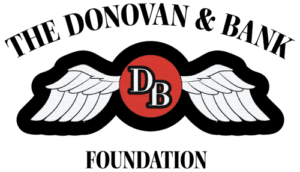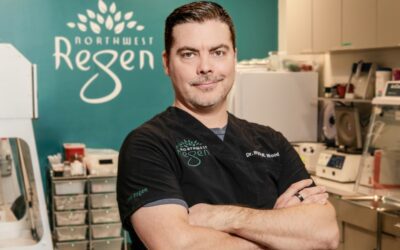Donovan and Bank Foundation Partnership
NW Regen has partnered with the Donovan and Bank Foundation to offer regenerative health treatments to soldiers and military personnel transitioning to civilian life.
What We Provide
At NW Regen, veterans and active military personnel can find safe, proven alternative treatments for mental and emotional health conditions via our personalized regenerative medical practice, including proven effective SGB procedures for relief of PTSD, PTSI, anxiety, insomnia, panic attacks, stress, and depression.
NW Regen is a pioneer and recognized leader in Stellate Ganglion Block (SGB) treatments on the west coast, serving a diverse community of patients from across the US, Canada, and beyond. We cannot emphasize enough the critical importance of expertise and precision in these procedures. Finding experienced experts matters. This ensures the utmost accuracy and safety in every treatment. Our extensive SGB experience underscores our commitment and established position as leaders in this field. Please learn more on our website, here.
Interview with Libby and Dr. Ryan
Q. Libby, you just returned from a Special Ops Experience – what was that all about?
Libby Mitcham: In October of ’24, Ryan and I shared quite a bonding experience. At the invitation of the Donovan & Bank Foundation, we traveled to Virginia, by way of Washington D.C., to participate in their bi-annual Special Operations Experience. Half of the people who knew we were going thought it sounded amazing. The other half thought we were nuts. I think both ‘halves’ were correct – the ‘whole’ of this weekend proved to be one of the most fascinating, exhilarating, terrifying and eye-opening experiences I’ve ever had.
Q. How was your trip related to the services NW Regen provides to veterans?
Libby Mitcham: Let me first explain who the Donovan & Bank Foundation is. They are an amazing North Carolina-based 501(c)(3) charitable organization dedicated to helping U.S. Special Operators bring closure to their warrior story and transition to a life of peace, contentment, and balance.The foundation accomplishes its mission through a variety of transition assistance services delivered through four interrelated, mutually supporting programs, including the D&B Wellness Program, which NW Regen is now a key west coast partner.
They invited us to attend their Special Ops Experience so we could meet active service members, learn more about their unique lives, and get first-hand knowledge of their medical needs, so that we at NW Regen can better help soldiers improve their mental, emotional, and physical health.
Relevant services our clinic provides include, but are not limited to, Stellate Ganglion Blocks and other regenerative treatments for Concussion/TBI. These effective services allow us to provide much-needed mental health and brain trauma therapy and treatments for returning servicemen and women.
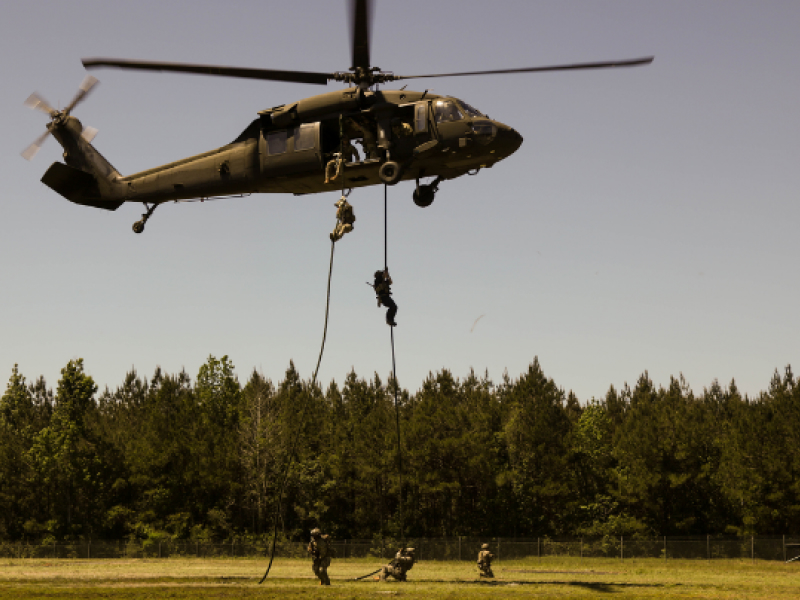
Special Ops experience at Donovan & Bank
Q. Doctor, please tell us about the Special Ops Experience and why you participated.
Dr. Ryan Wood: I went because I wanted to see the life of a Special Ops service member for myself, meet soldiers who were career Special Forces, and figure out what we could do to give back. There is much to say about this opportunity to spend time with Special Forces and see what they do on a daily basis. You can’t prepare for anything like this mentally. You could spend weeks training in small arms combat and getting into shape. Unless you’ve been a soldier at their level before, it isn’t possible to prepare for this.
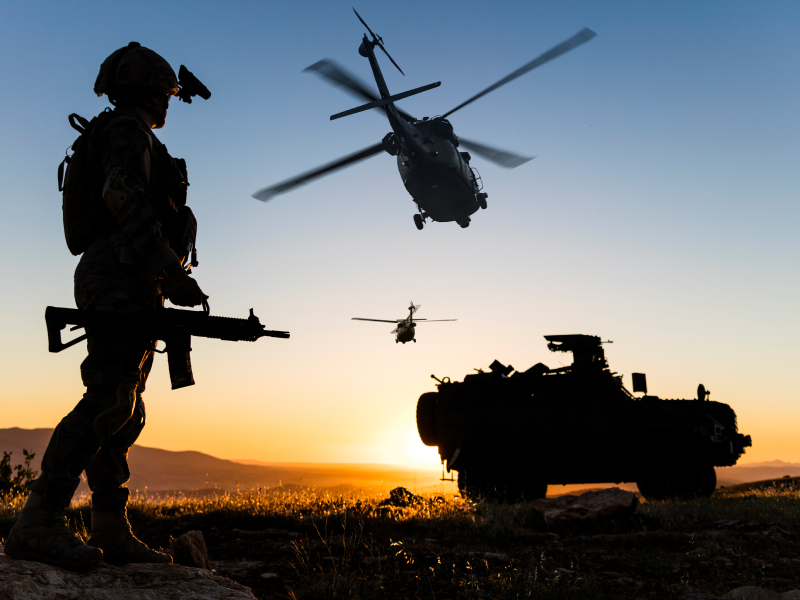
Q. How did working 1:1 with Special Operations soldiers impact you as a participant?
Dr. Ryan Wood: You cannot imagine how intense it is to meet someone with 18 tours of duty under their belt who goes into combat like I would go to my day-to-day job. I didn’t leave the weekend feeling like I accomplished this amazing and challenging training that was both exhilarating and terrifying, which I did… I left with a different appreciation of how these soldiers are trying to deal with leaving their brotherhood for civilian life.
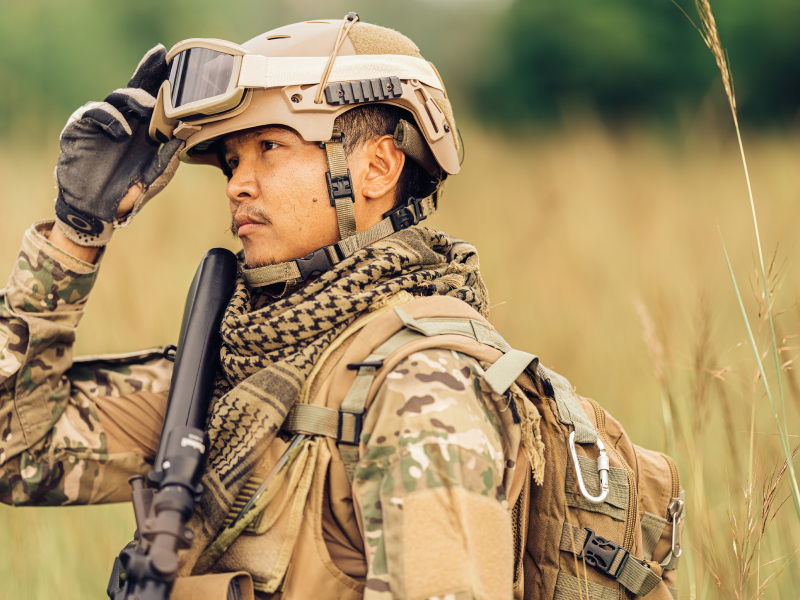
They’ve spent a couple of decades of stress most people can never know, and I’m amazed at how their bodies adapted to this. Now, they are back home and carry with them the multiple levels of injuries they incurred to support our country. I have a lot of respect for them and am in shock and awe of their talents, but I also recognize the mental, physical, and emotional toll this took.
Q. What did you learn about the soldiers and their need for health care support, doctor?
Dr. Ryan Wood: These soldiers are professionals at the top of their game. Green Berets make up less than 1% of all the military and perform 95% of all combat missions. Special Forces are career soldiers and often spend decades in combat-like situations. This isn’t all they do, as their motto is “De Oppresso Liber” — “To Free the Oppressed.” They spoke about building schools and supporting local communities, as well as training foreign forces on how to defend themselves. They stand for those who cannot, and they are damn good at it.
Beyond them being elite soldiers – they are people dealing with operating at the level necessary to be like this, often for decades, and then coming back to civilian life with the injuries from such high a level of performance. It’s called Operator Syndrome and is the natural consequences of an extraordinarily high allostatic load; the accumulation of physiological, neural, and neuroendocrine responses resulting from the prolonged chronic stress and physical demands of a career with the military Special Forces.
In laymen’s terms, their systems are in shock – sleeping 3 hours a day for months to years of combat and having to get the job done. It takes a toll. They kept saying “All gave some, some gave all.” I believe these guys, and from my perspective, they all gave everything they could. They all had some level ofcombat injury. They all were affected in one way or another, and none of the soldiers I met said anything less than how much they loved serving. How their careers were incredible, but difficult. They have more grit than any group of people I’ve ever met and for anyone who just keeps going, these soldiers epitomize that. It was an honor of my life to spend time with them.
As a civilain, I’m just looking at anything I can do to give back. All of our first responders and military deserve this.
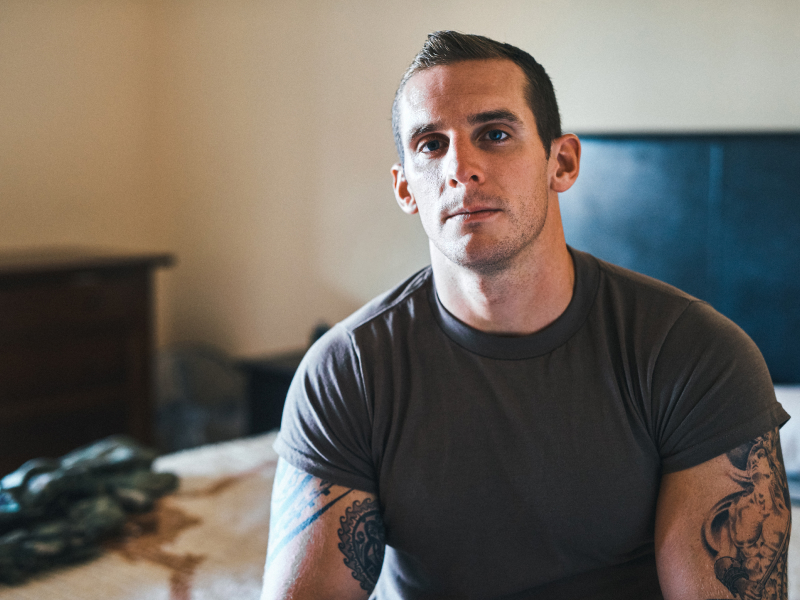
Q. Can you explain what the weekend experience entailed for the two of you, Libby?
Libby Mitcham: There were different experiences that our 4-person teams rotated through, including rappelling, close quarter battle (CQB), hostage retrieval, short and long-range shooting, canine interactions, helicopters, car chases, and explosives.
Ryan was teamed up with three other physicians, along with Colonel (Rtr.) Stu Farris, who is D&B Foundation’s Director of Innovative Wellness, as their team lead.
I was teamed up with three women from varying backgrounds – one who leads a cyber-security company, one who works in real estate, and one woman who will shortly be headed off to Army boot camp – led by a Special Ops Officer.
Over 36 hours, we had a very intense peek under the hood of what a career in Special Operations entails. Neither of us came out unscathed. Far from it actually… I counted 7 bullet hits across my arms, hip, hand and torso where there was no body armor to protect me, as well as an impressively large bruise in the shape of a door jam across my thigh. Ryan had more than a couple bumps and bruises as well.
It was a realization that this group of highly decorated Special Force members surrounding us managed to make it back after years of this – not just one day. But at what cost? They’ve done it all at the sacrifice of their personal lives, their bodies and their minds. I think that mental piece is the hardest to bring back with you.
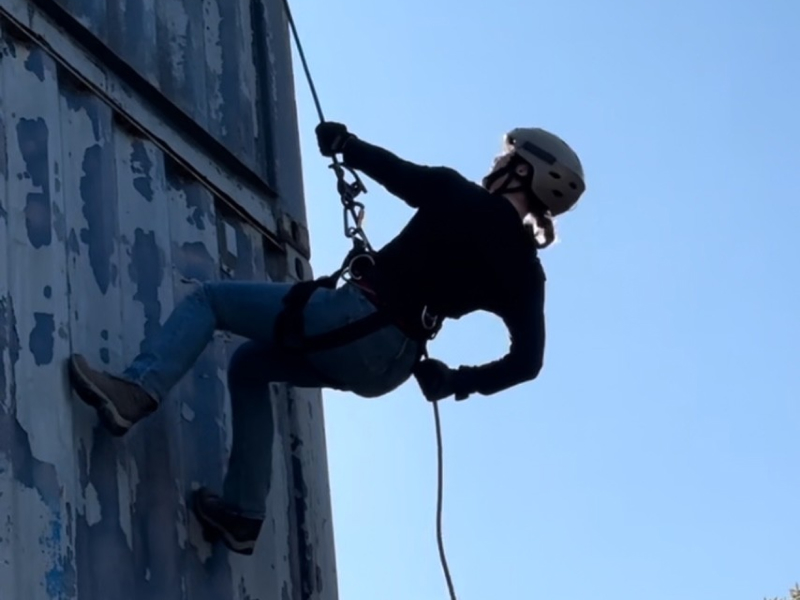
Libby rappels
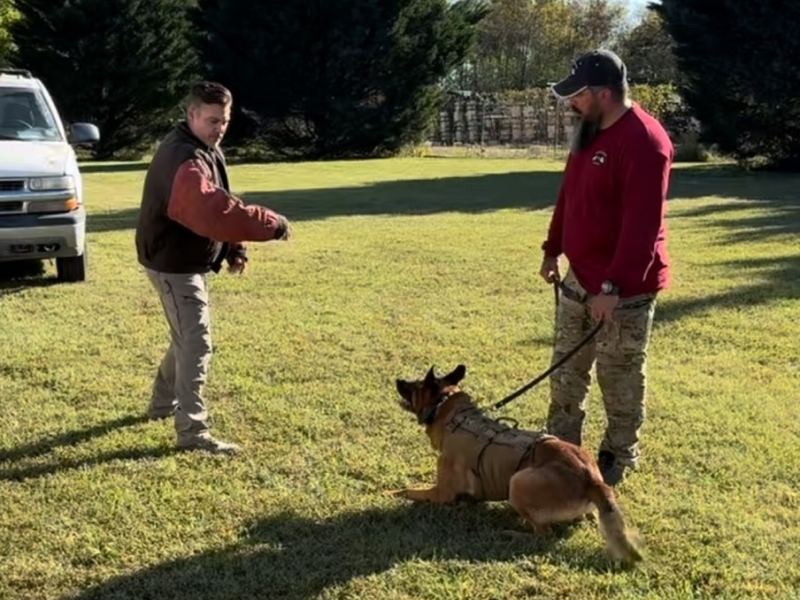
Dr. Ryan prepares for a dog attack on the right.
Libby Mitcham: I spoke at length with a few of the guys, and I heard stories that I cannot fathom having to experience in person. It was hard just to listen to them. But I did. I felt I owed them that much. Sitting outside in the dark, huddled around the fire, I looked around and could see how the light reflected in the eyes of so many. Frankly, that told me more than words could.
There was a profound sadness that resonated with Ryan and I that honestly lingers still. I don’t think that is going to go away any time soon.
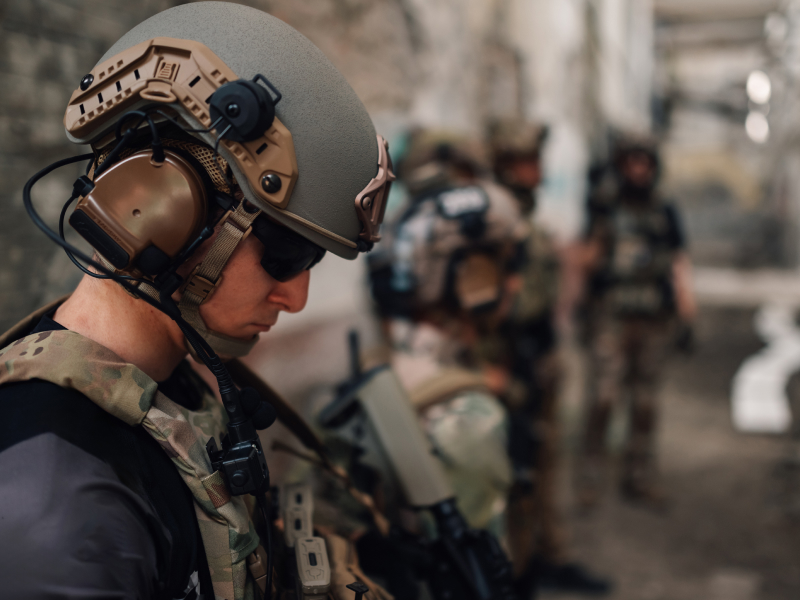
” I want to help our military, and I can do this by providing treatment for PTSI – using SGB.”
– Dr. Ryan Wood, NW Regen
Q. How do you feel now that you’re back at the clinic and all this is behind you?
Dr. Ryan Wood: We are giving back. There is a need for better health care for our military and there aren’t enough resources. We are doing our part to fill those voids and provide high-level care that is meaningful and beneficial for most people. Libby Mitcham: Dr. Wood is not a typical doctor. He’s here to educate and help people with their pain, no matter where it stems from… and most likely in ways they’ve never heard of. For once, these experts in their own field can step aside and let someone else take the lead. That’s powerful. I am proud that our clinic can be one of those helping hands.
NW Regen
We offer regenerative and interventional medicine – tailored to empower you with a more vibrant, active lifestyle.
